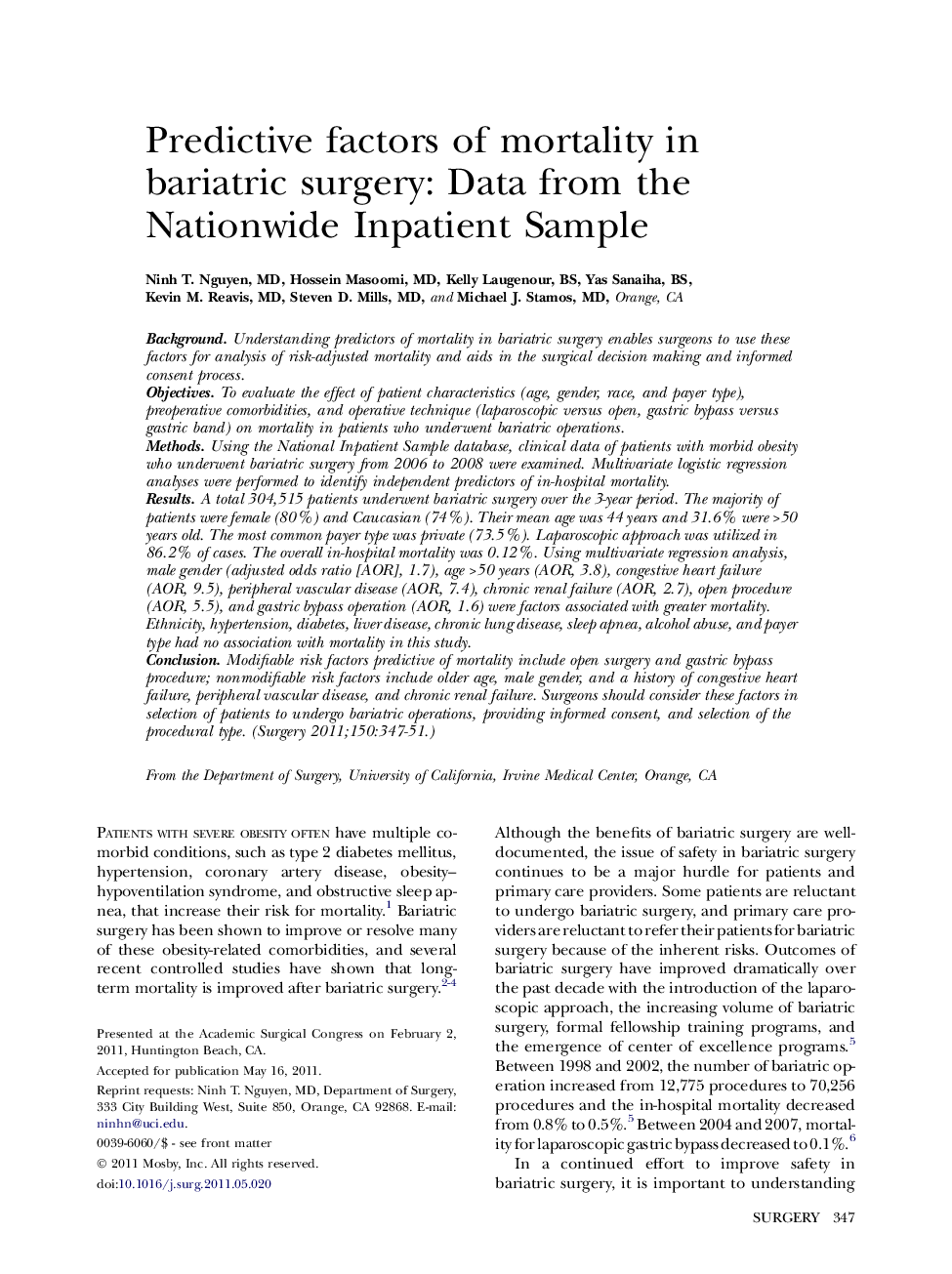| Article ID | Journal | Published Year | Pages | File Type |
|---|---|---|---|---|
| 4308818 | Surgery | 2011 | 5 Pages |
BackgroundUnderstanding predictors of mortality in bariatric surgery enables surgeons to use these factors for analysis of risk-adjusted mortality and aids in the surgical decision making and informed consent process.ObjectivesTo evaluate the effect of patient characteristics (age, gender, race, and payer type), preoperative comorbidities, and operative technique (laparoscopic versus open, gastric bypass versus gastric band) on mortality in patients who underwent bariatric operations.MethodsUsing the National Inpatient Sample database, clinical data of patients with morbid obesity who underwent bariatric surgery from 2006 to 2008 were examined. Multivariate logistic regression analyses were performed to identify independent predictors of in-hospital mortality.ResultsA total 304,515 patients underwent bariatric surgery over the 3-year period. The majority of patients were female (80%) and Caucasian (74%). Their mean age was 44 years and 31.6% were >50 years old. The most common payer type was private (73.5%). Laparoscopic approach was utilized in 86.2% of cases. The overall in-hospital mortality was 0.12%. Using multivariate regression analysis, male gender (adjusted odds ratio [AOR], 1.7), age >50 years (AOR, 3.8), congestive heart failure (AOR, 9.5), peripheral vascular disease (AOR, 7.4), chronic renal failure (AOR, 2.7), open procedure (AOR, 5.5), and gastric bypass operation (AOR, 1.6) were factors associated with greater mortality. Ethnicity, hypertension, diabetes, liver disease, chronic lung disease, sleep apnea, alcohol abuse, and payer type had no association with mortality in this study.ConclusionModifiable risk factors predictive of mortality include open surgery and gastric bypass procedure; nonmodifiable risk factors include older age, male gender, and a history of congestive heart failure, peripheral vascular disease, and chronic renal failure. Surgeons should consider these factors in selection of patients to undergo bariatric operations, providing informed consent, and selection of the procedural type.
